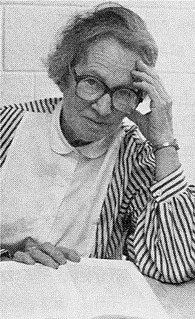A Quote by Alain de Botton
I'm not an academic philosopher, and don't agree with the way the universities approach the subject. I'm a philosopher only in the very loose sense of someone interested in wisdom and well-being attained through reason. But I'm as interested in psychoanalysis and art as I am in philosophy.
Related Quotes
I drifted into a career in academic philosophy because I couldn't see anything outside the academy that looked to be anything other than drudgery. But I wouldn't say I 'became a philosopher' until an early mid-life crisis forced me to confront the fact that, while 'philosophy' means 'love of wisdom', and 'wisdom' is the knowledge of how to live well, the analytic philosophy in which I had been trained seemed to have nothing to do with life.
I have always taken as the standard of the mode of teaching and writing, not the abstract, particular, professional philosopher, but universal man, that I have regarded man as the criterion of truth, and not this or that founder of a system, and have from the first placed the highest excellence of the philosopher in this, that he abstains, both as a man and as an author, from the ostentation of philosophy, i. e., that he is a philosopher only in reality, not formally, that he is a quiet philosopher, not a loud and still less a brawling one.
I know well enough that very few people who are supposedly interested in writing are interested in writing well. They are interested in publishing something, and if possible in making a "killing." They are interested in being a writer not in writing. . . If this is what you are interested in, I am not going to be much use to you.
I was trained as a philosopher never to put philosophers and their ideas into historical contexts, since historical context has nothing to do with the validity of the philosopher's positions. I agree that assessing validity and contextualizing historically are two entirely distinct matters and not to be confused with one another. And yet that firm distinction doesn't lead me to endorse the usual way in which history of philosophy is presented.
BERTRAND RUSSELL, The Philosophy of Logical Atomism We've associated that word philosophy with academic study that in its own way has gotten so far beyond the layman that if you read contemporary philosophy you've no clue, because it's almost become math. And it's odd that if you don't do that and you call yourself a philosopher that you always get 'homespun' attached to it.
It is clear that everybody interested in science must be interested in world 3 objects. A physical scientist, to start with, may be interested mainly in world 1 objects--say crystals and X-rays. But very soon he must realize how much depends on our interpretation of the facts, that is, on our theories, and so on world 3 objects. Similarly, a historian of science, or a philosopher interested in science must be largely a student of world 3 objects.






































